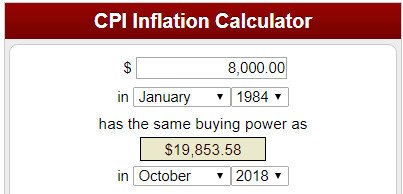I have a friend who is 74 and is a retired teacher. Her pension covers all of her day-to-day living expenses, and she has great health insurance. She owns her waterfront condo outright, and has a few hundred thousand in CD's. She's conservative and has never really invested in equities apart from the annuity described below.
Her other major investment is an annuity through a group called Home - Confidence Wealth Management. She asked me to go with her to her appointment. It is one of those annuities where the value is guaranteed not to go down, and she can invest in equities through the annuity. She showed me her balance over the last few years, and it doesn't seem like she has gotten much benefit from market appreciation. She's been invested 50/50 in the S&P 500 and NASDAQ so it seems that she should have gotten appreciation.
I know this group is not a big fan of annuities, and we don't own any ourselves. If you were going with this person to her appointment with her annuity advisor, what questions would you ask? A few I've already thought of are:
- With the market having gone up substantially in the 2015-2017 time frame, why did the account balance not go up ... ie how much appreciation is credited to the annuity holder vs kept by the provider?
- If the value can never go down, why wouldn't the investments recommended be the most aggressive possible, with the best long-term growth potential?
- Obviously the benefit of this product is limiting her risk, but at what cost? What are all of the fees embedded in this annuity?
- What are the surrender charges if she decided this was no longer an appropriate investment for her? Is there a schedule of these available?
Since my friend is very risk-averse, and this is a guaranteed product, maybe it isn't too bad for her, but I'd appreciate any thoughts/additional questions you suggest I share with her and/or ask at the appointment. Thanks!
Her other major investment is an annuity through a group called Home - Confidence Wealth Management. She asked me to go with her to her appointment. It is one of those annuities where the value is guaranteed not to go down, and she can invest in equities through the annuity. She showed me her balance over the last few years, and it doesn't seem like she has gotten much benefit from market appreciation. She's been invested 50/50 in the S&P 500 and NASDAQ so it seems that she should have gotten appreciation.
I know this group is not a big fan of annuities, and we don't own any ourselves. If you were going with this person to her appointment with her annuity advisor, what questions would you ask? A few I've already thought of are:
- With the market having gone up substantially in the 2015-2017 time frame, why did the account balance not go up ... ie how much appreciation is credited to the annuity holder vs kept by the provider?
- If the value can never go down, why wouldn't the investments recommended be the most aggressive possible, with the best long-term growth potential?
- Obviously the benefit of this product is limiting her risk, but at what cost? What are all of the fees embedded in this annuity?
- What are the surrender charges if she decided this was no longer an appropriate investment for her? Is there a schedule of these available?
Since my friend is very risk-averse, and this is a guaranteed product, maybe it isn't too bad for her, but I'd appreciate any thoughts/additional questions you suggest I share with her and/or ask at the appointment. Thanks!

